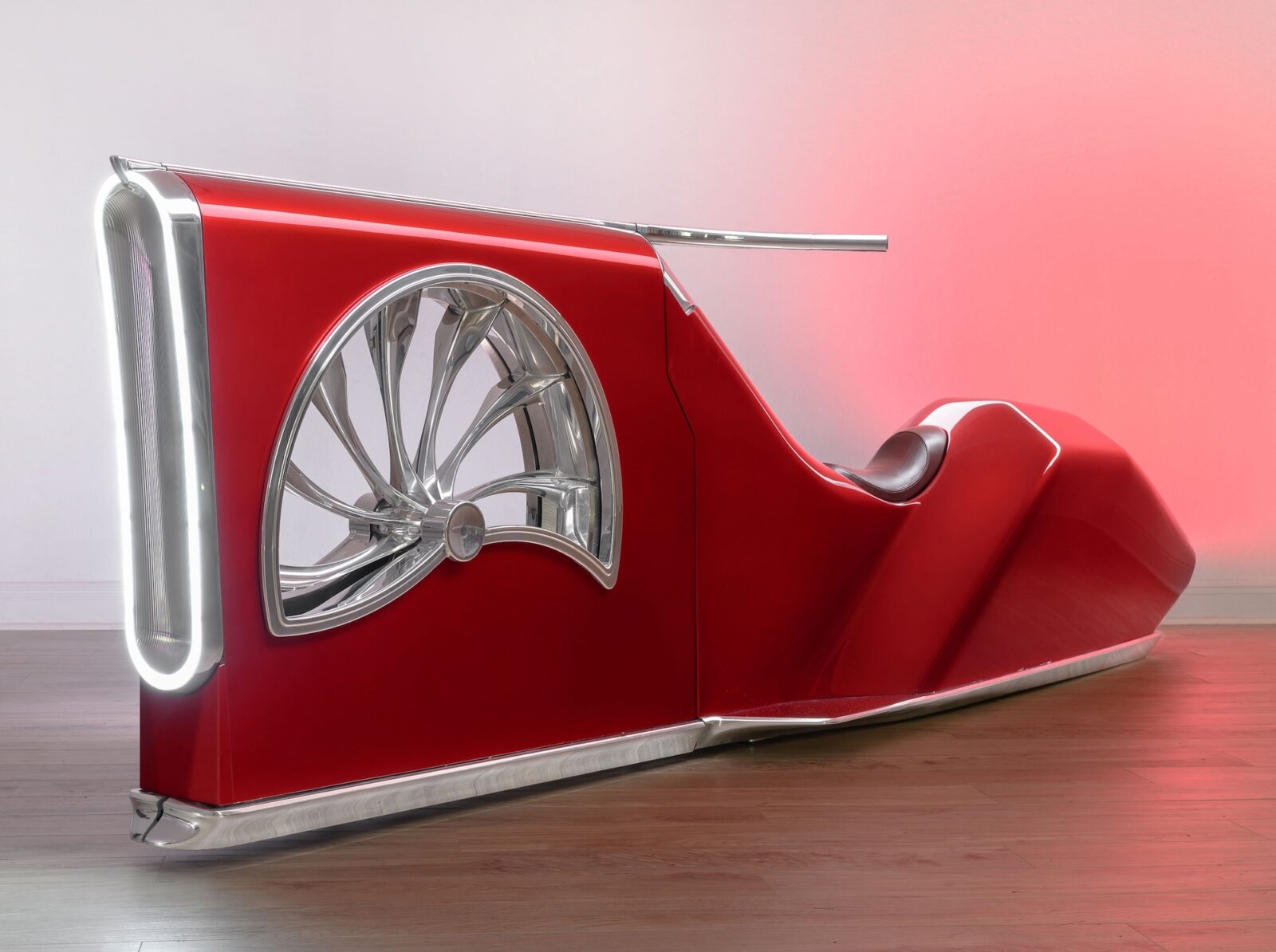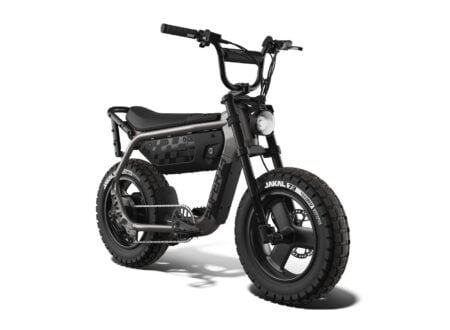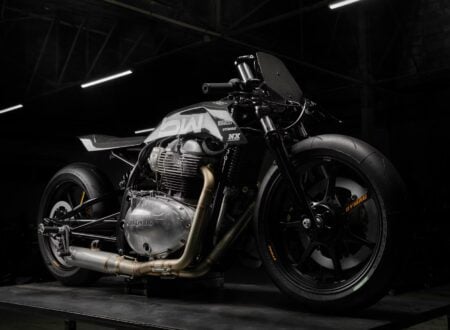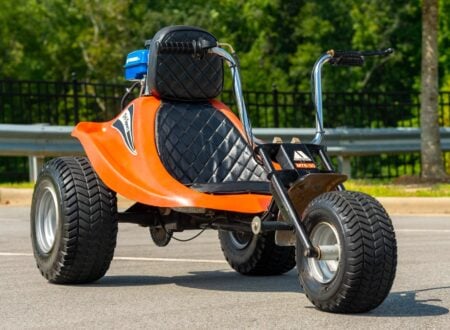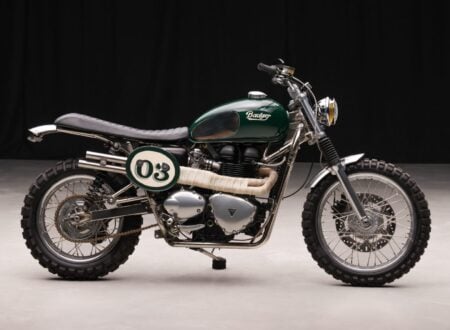This is the Guido electric motorcycle prototype that was developed by Vlad Belyakov of Box39 based out of Moscow, Russia. It’s the only one of its kind, and it is functional as a motorcycle.
The aluminum alloy frame of the Guido was made using advanced 5-axis Haas milling machines as was the front wheel. The 30-inch front wheel is said to have taken 200 hours of machine time to create.
Fast Facts – The Guido Electric Motorcycle Prototype
- The Guido electric motorcycle prototype was designed and built by celebrated custom motorcycle builder Vlad Belyakov of Box39 based out of Moscow, Russia. Vlad has a reputation for creating mind-bending motorcycle designs using five-axis Haas milling machines, and the Guido may be the most outlandish yet.
- It was named Guido after the 17th-century Italian Baroque painter Guido Reni, it’s a not a reference to the young working-class Italian-Americans of New Jersey. The Guido was directly inspired by the futuristic Rolls-Royce 130EX concept from 2016, and there is a notable similarity between the two vehicles.
- The Guido is a 100% electric motorcycle, with a rear-mounted electric motor powered by a lithium-ion battery system. Power, acceleration, and top speed are not listed – the bike is functional and rideable however it’s not road legal, and should be viewed as more of a functional sculpture.
- The bike is now being offered for sale by RM Sotheby’s as part of their Miami Auction due to be held in early March. The price guide is $90,000 – $150,000 USD.
Vlad Belyakov + Box39
Vlad Belyakov’s first motorcycle ride was in the sidecar of an antique Ural, a ubiquitous sight on Russian roads that can track its history all the way back to the Second World War – The Ural started out as a license-built copy of the German BMW R71. This was back when the Soviets and Germans were still allies, before Hitler’s decision to move east and acquire some additional lebensraum.
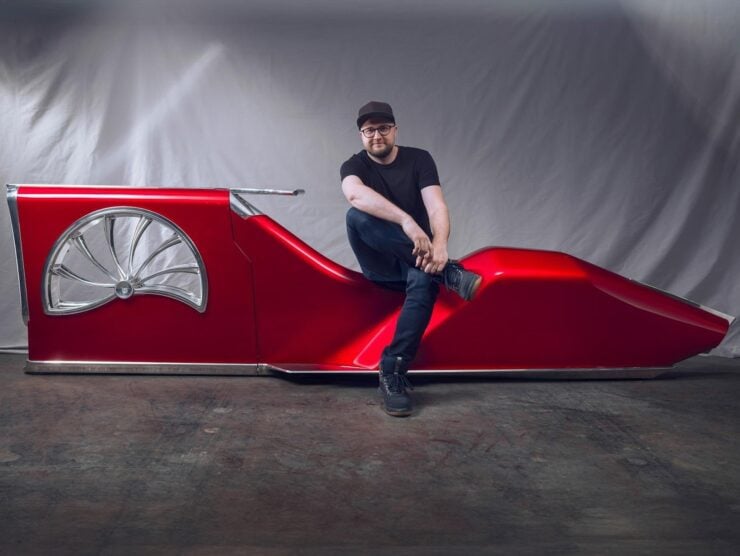

The Russian version of the BMW R71 did incorporate some changes, it wasn’t quite an exact copy, and it was designated M-72 by the Red Army with production starting in 1941.
Though it started out as a military motorcycle, the M-72 would quickly find its way into civilian hands. Production of evolved versions of this bike continue to the current day, and they’ve become popular as alternative adventure bikes in many Western nations.
It All Started With A Steed
The first motorcycle Vlad Belyakov bought for himself was a 1998 Honda Steed. A 398cc V-twin cruiser that is closely related to the Honda Shadow series of motorcycles sold in the United States and elsewhere as a cheaper alternative to Harley-Davidsons.
Vlad wasted no time in customizing the bike, turning it into a bobber with a white-blue paint scheme that he would later describe as “awful.”
Things have changed drastically over the past few years, he founded a professional custom motorcycle workshop called Box39 and has now become arguably the most famous Russian custom motorcycle builder in the world; known for his use of Haas UMC-1000 5-axis milling machines that cost upwards of $200,000 USD apiece.
Box39 now produce a series of in-house designed wheels, swingarms, and other parts that people around the world buy to use on their own custom motorcycles – typically at significant cost. Vlad also works on his own custom motorcycle designs, as well as motorcycle commissions for other companies.
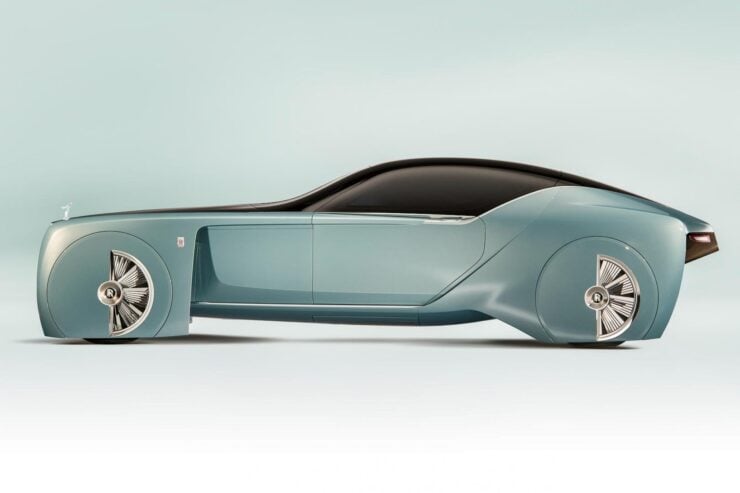

The Guido Electric Motorcycle By Box39
The Guido electric motorcycle was developed and built on a commission from Abamet, the largest Haas distribution company in Eastern Europe, who used the completed bike as a showcase of just what modern Haas 5-axis milling machines can actually do when used to the full extent of their capabilities.
The bike has a complex aluminum frame and a hand-made aluminum body that is said to have taken four months to complete. Perhaps the most complex single part of the motorcycle is that 30-in front wheel, it’s made from a single block of aluminum and it required 200 hours in a 5-axis Haas milling machine to complete.
Underneath the bodywork you’ll find a 17-inch rear wheel and custom girder suspension up front, with electronic rear suspension. When a rider climbs onto the bike, the handlebars detect their fingerprint, and then raise the bike to their preferred side height which is stored in the onboard computer.
The front end of the bike does turn, and it is rideable, it has a small padded seat which can be removed to access the bike’s electrical system. It has a large oval-shaped LED headlight up front and a strip of LED lights on the rear fender as the brake/running light.
There’s limited information available about the specific electric motor used or the batteries, and no word on range or top speed. That said, none of these things are really relevant as it’s meant to be a piece of art that would only ever be ridden rarely.
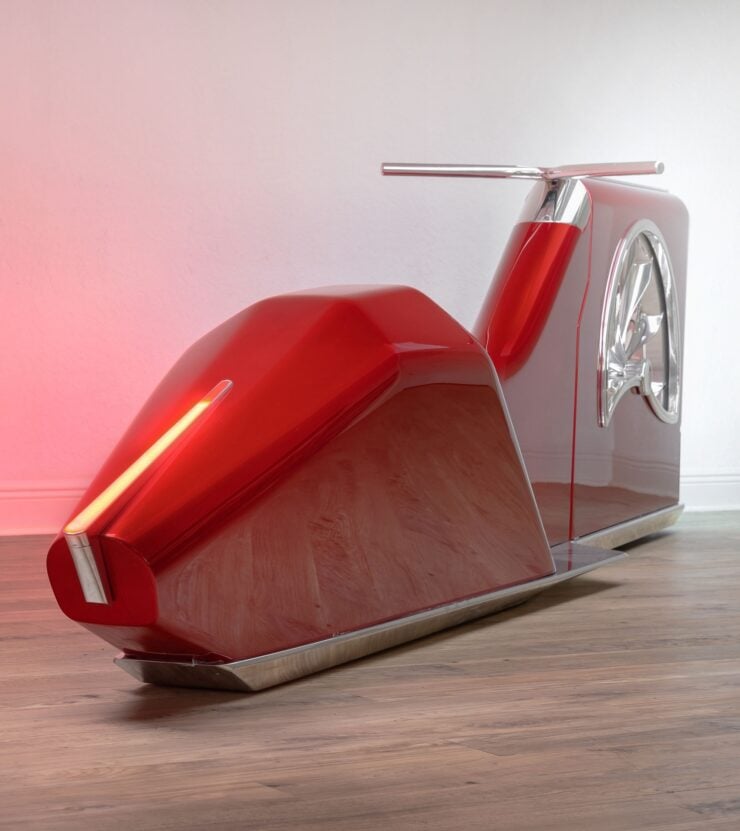

When the Guido electric motorcycle was first unveiled in 2020 it lit up motorcycle publications across the internet and those that are still in print. It’s enjoyed numerous cover stories and as with any motorcycle of this type, it’s launched untold numbers of arguments in social media and website comment sections between those who love it, and those who find it very upsetting.
It’s now due to roll across the auction block with RM Sotheby’s in early March in Miami. The price guide is $90,000 – $150,000 USD and you can visit the listing here if you’d like to read more about it or register to bid.
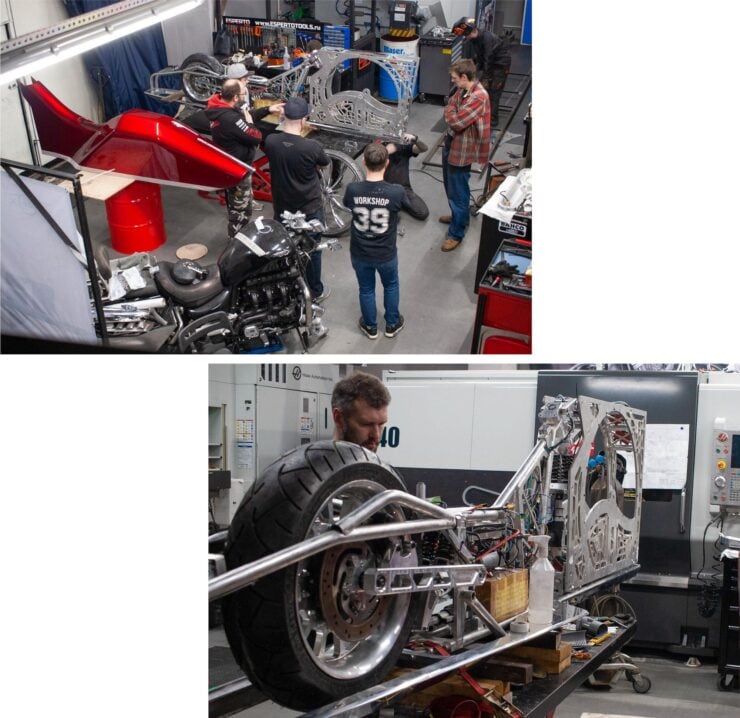

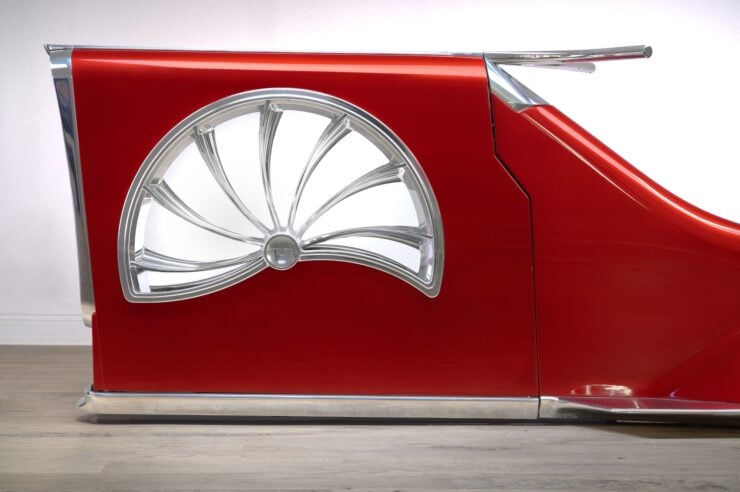
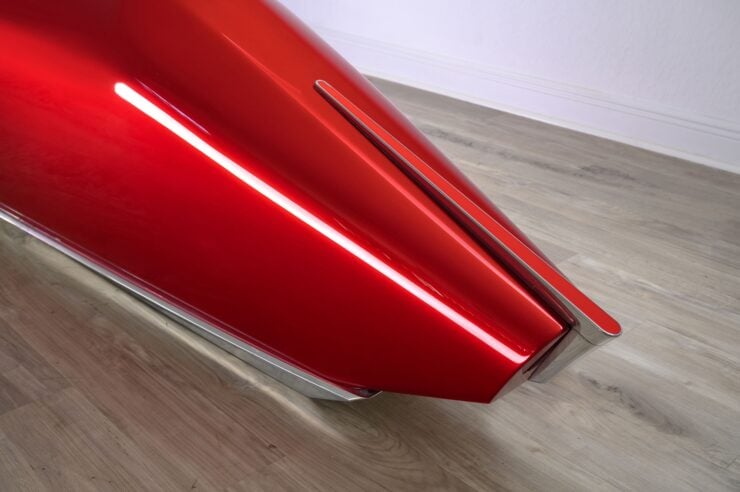
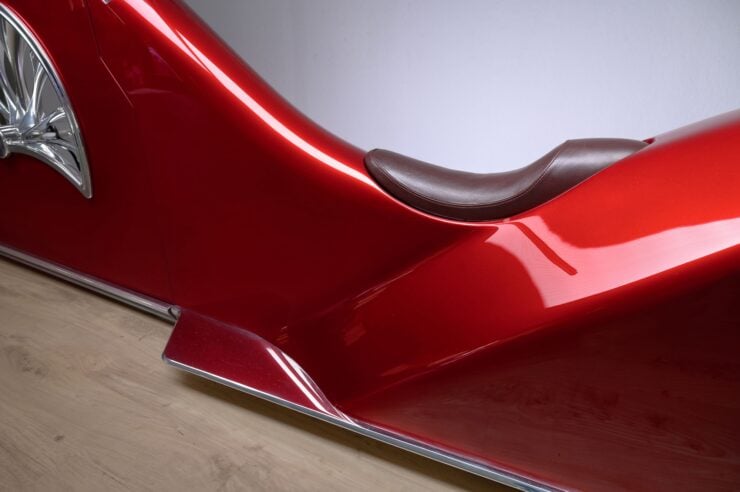
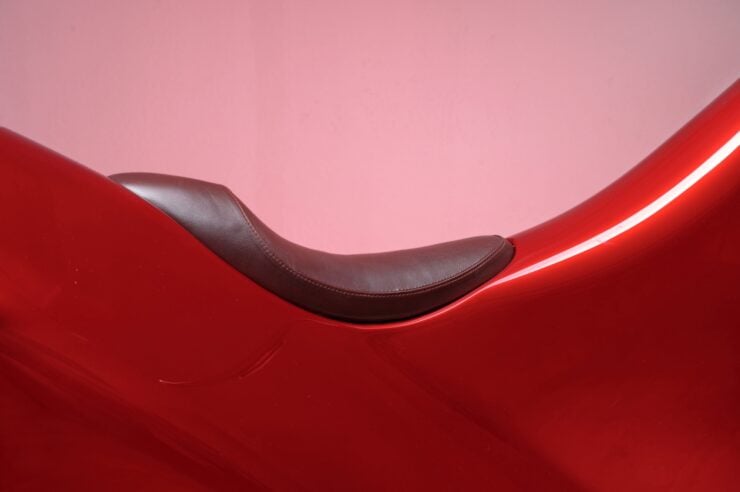
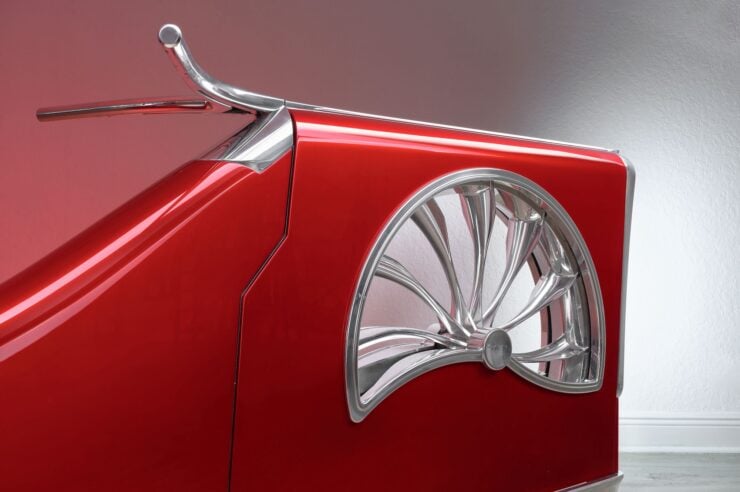
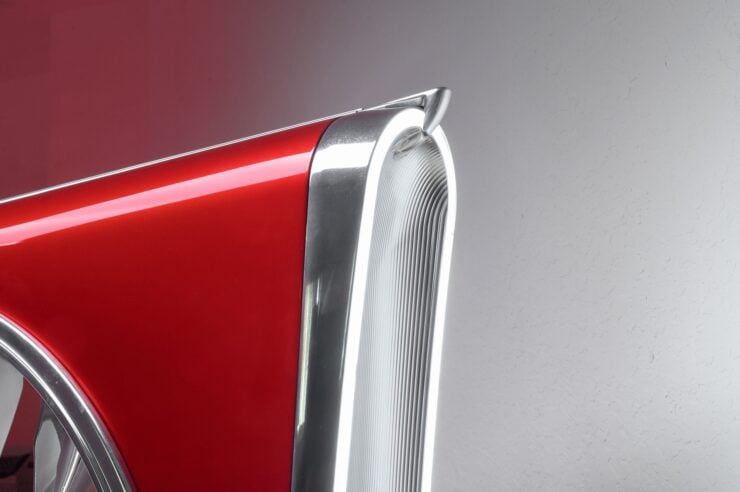
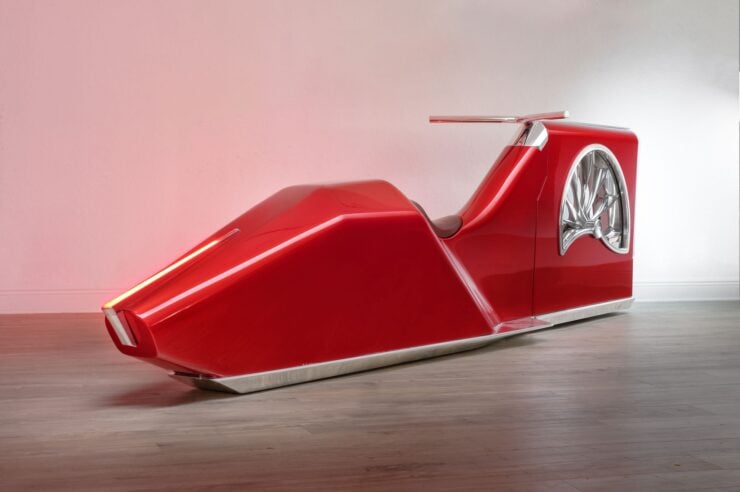
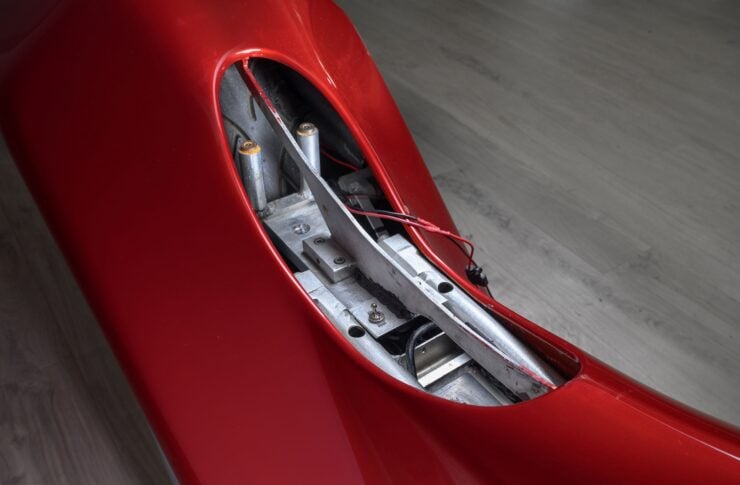
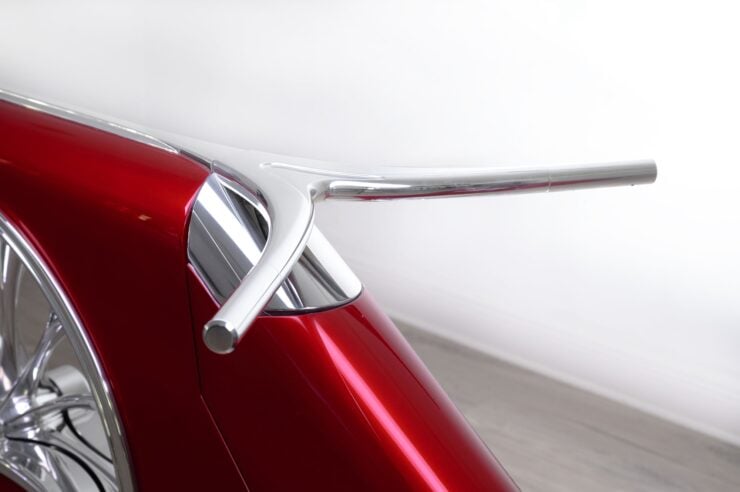
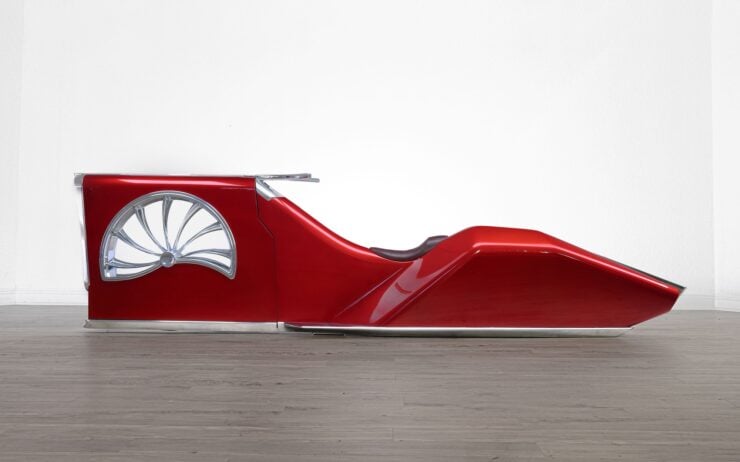
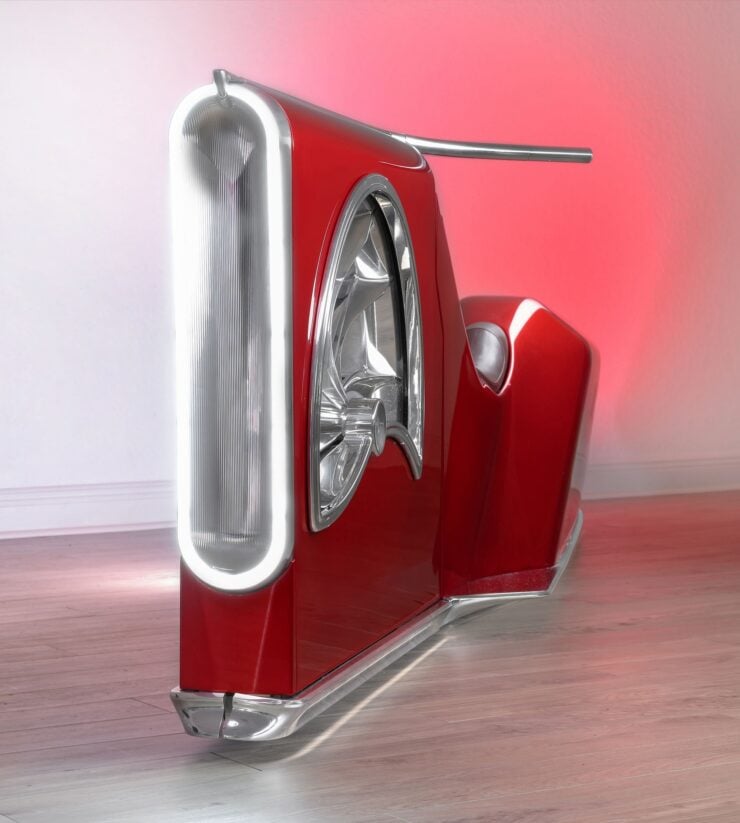
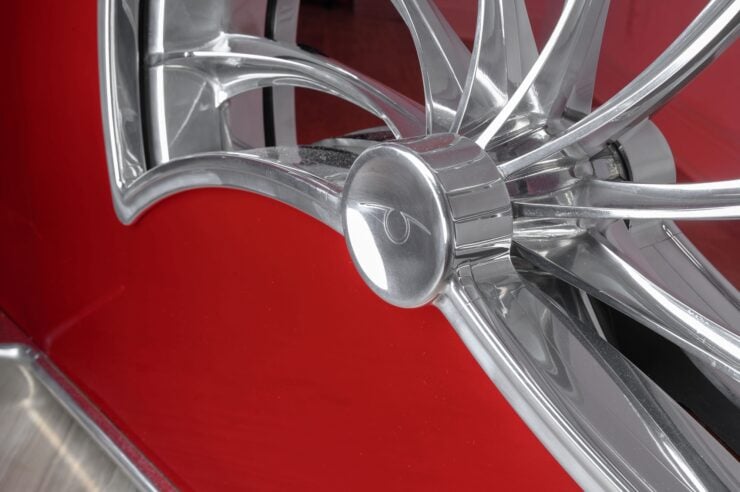
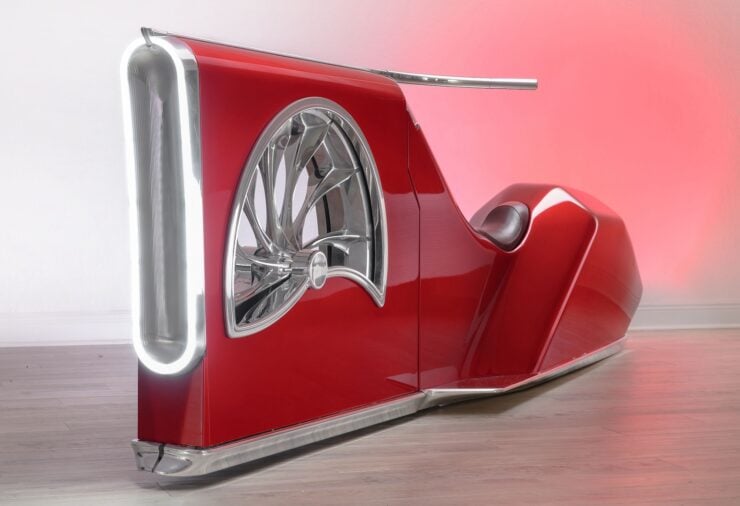
Images: Jasen Delgado ©2024 Courtesy of RM Sotheby’s

